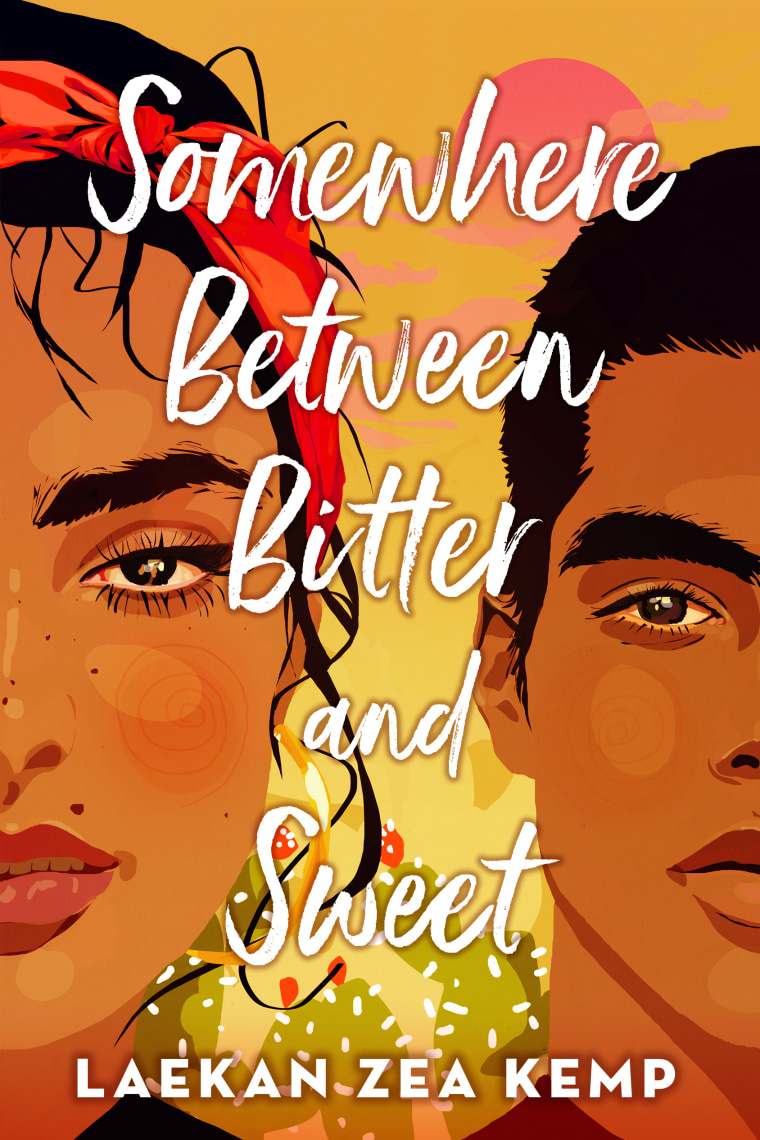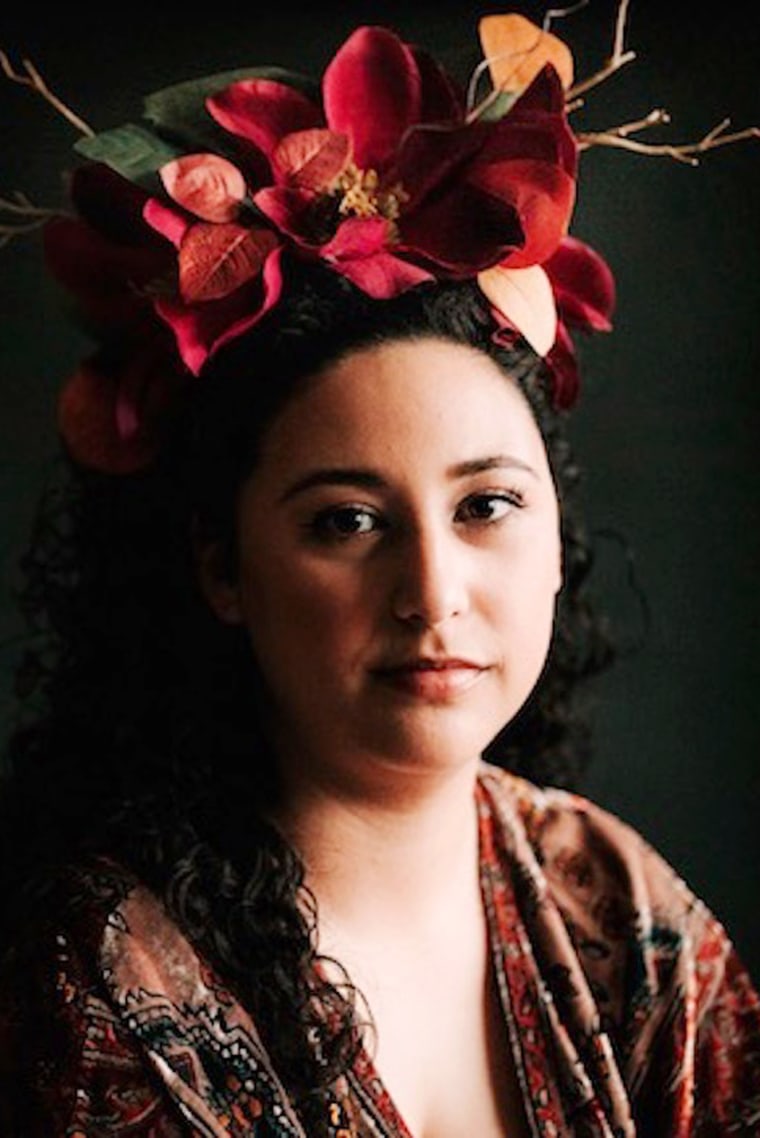Laekan Zea Kemp often thinks of a scene from the now-legendary 1997 film “Selena” when she pictures the two worlds many Mexican Americans have to navigate each day.
“There’s that famous line where her father says, ‘You know, we have to be more Mexican than the Mexicans and more American than the Americans.’ I think all Chicanos feel that so deeply,” Kemp said. “But even if we were to perfectly perform each of those identities, I'm not sure that we would be fully accepted as either.”
Those expectations are just some of the themes Kemp explores in her debut contemporary young adult novel, “Somewhere Between Bitter and Sweet,” which is being released on April 6 by Little, Brown Books for Young Readers. The book tells the story of two Texas teens, Penelope and Xander, who meet while working at the taco restaurant owned by Penelope’s father. While Penelope dreams of opening her own pastry shop, Xander has recently come to Austin from Mexico to reunite with his father, whom he hasn’t seen in years.
Creating the character of Penelope meant that Kemp drew on many of her own experiences.

“As a mixed-race Chicana, I feel like I have always existed at the center of that tension. This straddling two worlds was just kind of second nature to me,” Kemp said. “It is a really unique and not often talked about experience, to be fourth or third generation and to grow up in Texas in particular,” she said. “We’re in such close proximity to Mexico, to our ancestral homeland, but also within a culture that is basically of our own making.”
Kemp’s own family history reflects that. A fourth-generation Mexican American who grew up in Lubbock, Texas, Kemp recently learned from relatives just how much her family was forced to assimilate and give up in order to live in the United States.
“We discovered that my grandfather's birth name is actually different from the name that we have always used to refer to him,” she said. The family discovered that his Spanish birth name had been changed by his first grade teacher to something more Anglo-sounding. “That was something that was actually very common and happened a lot, but I think the ripple effects to a family and to a culture are absolutely devastating.”
One of the consequences of that teacher’s decision was a further push to assimilation that led Kemp’s family to lose their Spanish fluency in just a generation.
“My grandparents didn't teach my mother and her siblings Spanish and therefore no one taught me,” she said.
Setting out to reclaim that culture and language is something Kemp, 29, has committed to doing as an adult. She added that it is also vital for younger Latinos to learn about and connect to the Indigenous cultures that existed in Mexico long before colonization.
“Coming to that realization of where we truly come from, it lifts the burden a little bit of feeling like you have to know Spanish or feeling like there's one very specific way to be Mexican or Mexican American or Chicano,” she said.
Her teaching experience and teens' 'immense trauma' and suffering

When creating her main character of Penelope, Kemp said she made it a point not to make her evolving relationship with identity or her struggles with mental health the primary focus of her story.
“Something that I love about Pen is that she's a creator. She is really passionate. She has a temper. She has mental health struggles. All of those things definitely affects the way she views the world and the way she moves through the world,” Kemp said. “But I wanted she and Xander to have goals that were sort of separate.”
While writing Xander, Kemp was inspired by her experiences working in a public school in 2017.
“I was an ESL teacher, and I was receiving new students almost weekly from Venezuela and I had several students from Central America as well,” she said, adding that many ended up living with relatives or family friends they barely knew. “All of them had suffered this immense trauma.”
But that trauma was rarely acknowledged by the adults around them, even as these students worked to adapt to a new country and language while also working on the weekends to support their families back home.
“Then they had these American teachers who were calling them lazy because they didn't turn in a homework assignment,” Kemp said. “My daily battle as their teacher and as their advocate on our campus was really to elicit empathy from people who would never understand their suffering.”
Becoming a novelist has allowed Kemp to draw attention to the lives of these teens in a different way. But while Kemp is encouraged by the increased Latino representation in the world of children’s publishing, “we still have a lot of work to do,” she noted. To make sure progress wins, Kemp said it is key to ensure publishers and readers uplift Latino authors and not just cherry-pick from Latino cultures.
“It's a very dangerous thing to love the commodities of a particular culture without loving the human beings who gave those cultural practices meaning,” she said. “That's how I'm measuring success right now, in terms of how much in the industry has truly changed. I just don't think we're there yet.”
Follow NBC Latino on Facebook, Twitter and Instagram.